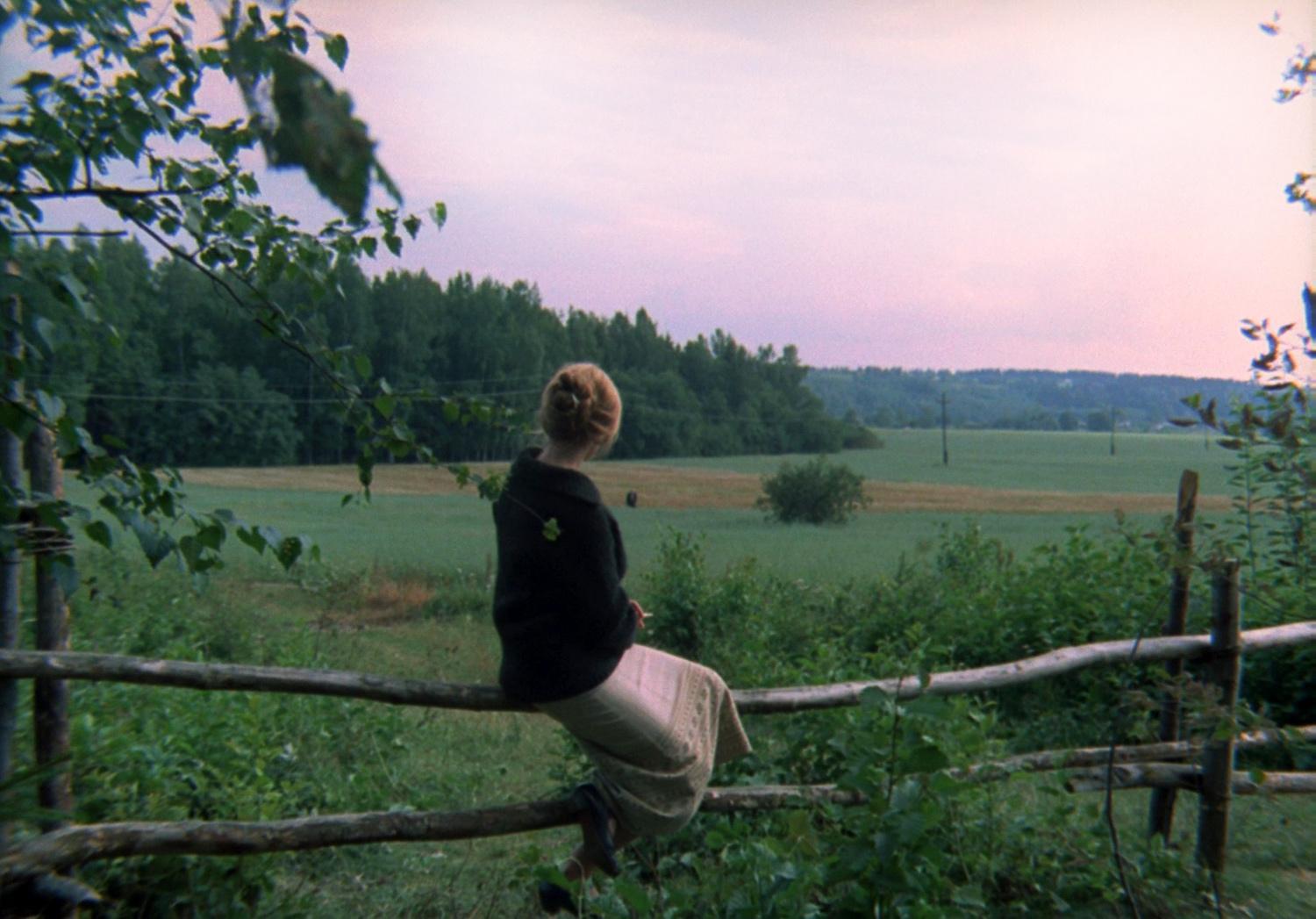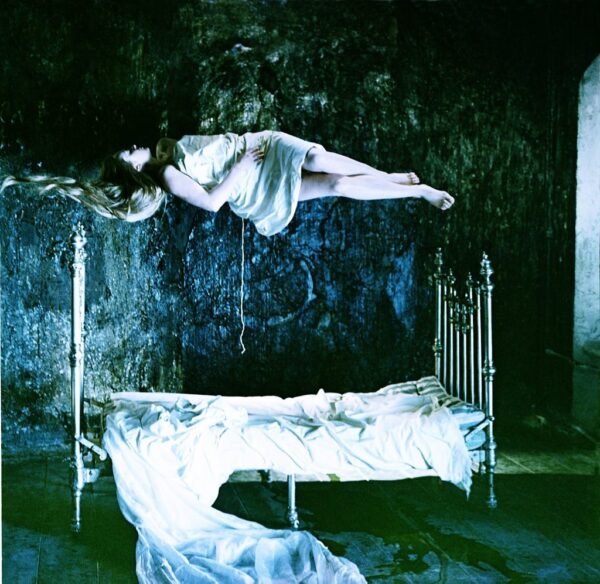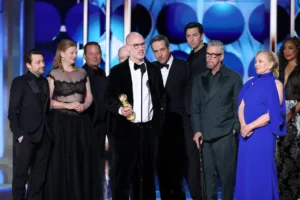‘Mirror’ Review: A Philosophical Collage Which Ponders Humanity

Photo Courtesy of FILMAFFINITY
★★★★★
Tales of Desperation and Innocence
As a man cerebrates the grievous nature of his infancy, he contemplates how wartime adolescence affects adulthood as well as the incomparable melancholia that incubated within his rural homestead. He pursues his awoken regimen for an auspicious manifestation from dawn to dusk. And as his head falls upon his pillow each night, he ponders his desire for an omen of how his future endeavors may be exhibited — whether it’s something euphoric or something somber. But no matter the magnitude of emotion within his mind — all he yearns to glimpse at is his father.
Consequently, time runs its course as Andrei Tarkovsky consolidates a semi-autobiographical tale of disparate fragmentations of time into a sublime representation of visual poetry. “Mirror,” can strike a chord amongst the heart of all people no matter their ethnic surroundings as the film molds “cinéma vérité” through an unjustifiable scope. And through an absence of a distinct climax nor any climactic escalation — the splicing of an overhanging vocation in Aleksei’s (the protagonist) mortal reflection along with the divine poetics of Arseny Tarkovsky (the father of Andrei) hatch a narrative with a graceful soul. Additionally, Andrei Tarkovsky imposes a naturalistic lens with a recurring presence of earthly entities such as birds who flock to the central subjects of each segment of the narrative. “Mirror” also encapsulates an undying concentration of fire and destruction as the tale’s countless quantities of core impetuses induce a continuous subtext of demolition.
Furthermore, Mr. Tarkovsky perpetually harnesses these animate and inanimate forces to conceptualize the abstract yet emotionally eloquent core of “Mirror.” And through the implementation of dreams interlaced with a cloudy contour of nostalgia — the motion picture’s construction touches on feelings embodying a sensation of unsheltered dread meshed with ethereality. Additionally — the cinematic postulates of “Mirror” encompass an infringing, labyrinthine plot track with remarkable tonal evolutions and transitions. Moreover, each singular fragment enunciates an authentic paradigm that’s confronted within the confines of life’s adolescent stages.
From a more auditory scope, Mr. Tarkovsky reconstitutes a score with glaring continuities to his previous work of “Andrei Rublev” in which he augments and amplifies the bolder undertones with stridently defiant orchestral pieces from Baroque period composers including Henry Purcell and Johann Sebastian Bach. These musical numbers provide an extravagant notion to the finer subtextual facets of the narrative as well as grandiose-caliber consummations within “Mirror’s” denouement.
However, the most poignant detail of Andrei Tarkovsky’s innovative historical tale would be the performance of “Mother” by Margarita Terekhova. Within the sprawling timetable of such a monumental cinematic construction — her ability to commandeer each sequence with an immense concentration of ambition and poise shines through with pure aptitude. Terekhova’s portrayal also situates as a subject under an angelic persona as she is frequently envisioned as a beating heart of incessant optimism within the dreams of the prime characters from which Mr. Tarkovsky’s screenplay contrives.

From a correlational interpretation — the splicing ground for the intangible constituents of “Mirror” necessitate the metaphysical outlooks of Andrei Tarkovsky’s previous films. Primarily, the expositional inception of 1972’s “Solaris” emerging under the mystifying mise-en-scénes of the celestial universe prove to be possible continuities. But even more perplexing is the narrative’s meditation on space as a locale for the aging of both men and women. In addition, the protagonist of Kris Kelvin finds himself erratically drawn to the transcendental presence on the aforementioned planet of Solaris. In spite of this — the morality of Kelvin parallels to the ventures of “Mother.”
For the case of “Mirror,” significant sequences that pose as the linchpin for the aging thematic outlook include frames of the Mother under the black and white compositions as she peers at an older — wrinkled depiction of herself in the mirror of her very household. Another conceptual subtlety that materializes within this palpable perception of the aging human would be the context in which Aleksei recollects his mother’s physical features. Recurringly — the Mother envisions herself as a progressively more senile woman as she peers through the reflection of the mirror; conversely, Aleksei, recalls his mother as a woman with untattered features that shy away from shedding a single wrinkle over the sprawling timetable of the motion picture. These frames exert and evoke a reminiscent flair as the camera lies under the blanketed tinge of sepia and saturated colors.
In the sense of other Andrei Tarkovsky pictures, it appears fairly conspicuous that the intonation of his plots follows a continual route. This path encases a prodigious quantity of societal cynicism that — in turn — initiates the revisionist subtexts of films such “Andrei Rublev” to work nearly identically to “Mirror” while maintaining an equivocal core. During the midpoint of “Mirror,” Mr. Tarkovsky prepends new contexts to the exposition of the film. Furthermore, he elongates the plot’s gamut to an even more astounding degree with a montage that presents worldwide protests both preceding and following the Second World War. This global outrage entertains the possibility of the universal effect of a single person’s autobiographical tale. And with the inclusion of Chinese protests belittling the mandates of Chairman Mao as well as the French’s infamous disgust following the Munich Agreement and submitting to the policy of appeasement, the overwhelmingly single-tiered narrative — from the commencement — begins to summon a much more earthly compendium of themes.
Another attribute that “Mirror” possesses appears solemn yet exceedingly enchanting, and this is a concept I identify as “portraiture flow.” One of Andrei Tarkovsky’s many artful techniques with a camera and lens is the expertise to expand the duration of a single frame; therefore, maintaining an immobile camera position. But — on the other hand — the systematic natural occurrences appear to complement each other in an utterly alluring fashion. For instance, one of the more picturesque portraits towards the beginning of the film presents a still frame of a barn as it burns under the recurring semblance of fire. Moreover, the side panels of the foreground show the presence of a window in which the camera peers through with the smooth droplets of rain that trickle down the periphery of the house. And within this one — meticulously composed image, the disparate intensity of fire and destruction are met with the soothing drops of water. Additionally, as the fire rises to the sky, in a devilish, brutal appearance — the liquid falls to the ground, oxymoronically dissociating from something equally as natural.
And within the oscillating tones throughout the whole of “Mirror,” Andrei Tarkovsky’s revelation of the past, present, and future strikes the heart of what truly feels inherent. The cohesion of each interwoven anecdote emerges as streams-of-consciousness under what film is meant to convey. No matter the reality nor fictional notion — Mr. Tarkovsky has grasped autobiographical memories and devised a work of artistry that is authentic and psychologically emancipating.
_________________________________________
Just this past Wednesday, I was fortunate enough to view a 35 millimeter restoration of Andrei Tarkovsky’s “Mirror” at the beautiful Howard Gilman Theater in Lincoln Center, and it was pure magic. Tarkovsky’s bold, autobiographical analysis of wartime Soviet Union encompasses some of the most abstract and hypnotic meditations on dreams, nightmares, and the uneasy effect of time on the human subconscious. In short, it’s a tale that sits as one of my personal favorite cinematic translations that is nothing short of “sculpting in time.”








